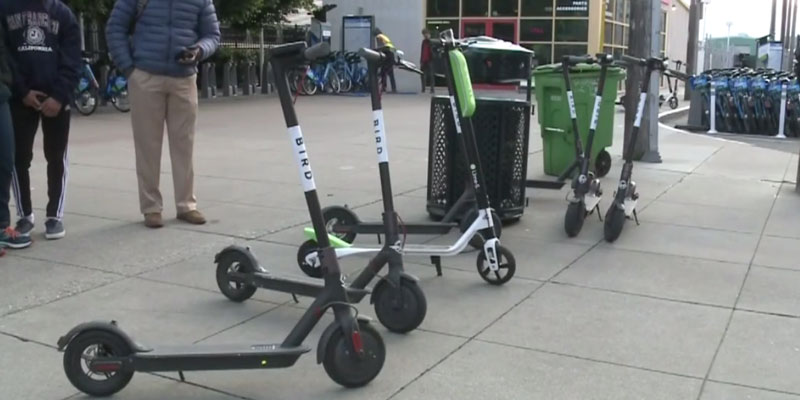Rental bikes and scooters came to Troy University this fall, courtesy of the rental company Spin. Similar efforts by Spin, Bird, and Lime across the country, however, have been met with controversy. The so-called “Scooter Wars” reflect how government permission affects innovation and growth.
Technology makes such rentals, long available in resort locales, economical. The companies use GPS tracking and electronic billing, and rentals can be unlocked by scanning a driver’s license. People leave the bike or scooter at their destination and an app directs customers looking for a ride to the nearest rental.
The companies use public spaces like sidewalks to “store” their rental units. This makes the rentals convenient for customers, as walking several blocks to and from rental locations would offset most of the time savings on short trips. Yet bikes and scooters clogging sidewalks have contributed to hostile reactions.
Numerous cities have banned the scooter companies, including Miami (which banned Bird and Lime within weeks), Seattle, Boston, Nashville and St. Paul. The bans have occurred in part because the companies entered some cities by just dropping off bikes and scooters on the streets for use. And Miami’s ban may not be permanent; Denver, Portland and Salt Lake City all eventually permitted scooter rentals after initial bans.
The government permission of relevance is more than simple business licenses, which are generally issued upon completion of required paperwork and payment of relevant fees. Instead, the permission requested here can be denied altogether. And this alters the prospects for innovation in our economy.
Should scooter companies need permission slips from cities? This is where the “Scooter Wars” highlight an important tension. Are people free to do whatever the law does not prohibit? Or do we need permission from government to start new businesses, offer new products and services, or use our property as we wish?
Rentals undoubtedly raise some valid concerns. Increased bike and scooter use can affect traffic safety. The rentals take up space on sidewalks, interfering with pedestrians. They could obstruct building entrances. Wouldn’t it be wise for city officials to evaluate the tradeoffs involved and impose rules to reduce potential problems?
Yes, but unfortunately requiring government permission does not produce only wise and benign oversight. Government permission empowers a NIMBY, or Not in My Backyard, society. NIMBY becomes the default response when people can object to a new venture for any reason, good, bad, or imagined. Do you find scooters unsightly, annoying, or threatening? Then pressure city officials to ban them.
Requiring government permission also allows economic interests to block competition. Economist Joseph Schumpeter described capitalism as a process of creative destruction: automobiles, cell phones, and email rendered horse-drawn buggies, landlines, and traditional mail largely obsolete. Existing businesses, often long-standing pillars of local economies and politics, have an interest in preventing innovation. If local governments must give permission, people’s natural NIMBY reaction and existing business’ interests create biases against innovation.
The scooter companies resorted to surprise deployments as a means, I think, of counteracting government’s status quo bias. Miamians took 30,000 trips on Lime scooters while they were available, and these users also spoke to city officials. Ridesharing company Uber similarly sought to develop loyal local customers to fend off local political efforts to ban ridesharing.
Progress requires innovation, even though the new and different can be frightening. Unfortunately, the need to get government permission becomes a formula for stasis, as Tyler Cowen examines in The Complacent Class. And dynamic innovation doesn’t mix well with permission. Computers and technology have been leading sources of innovation in recent decades in part because innovation here often still doesn’t require permission.
Personally, I’m too uncoordinated to try to use an electric scooter. So don’t expect to see me on a Spin scooter soon. But regardless of your age or coordination level, the Scooter Wars’ clash between NIMBY and innovation matters for us all.
Daniel Sutter is the Charles G. Koch Professor of Economics with the Manuel H. Johnson Center for Political Economy at Troy University.













